iPhone 17 Pro and iPhone 17 Pro Max review: Power, poise, and practicality from Apple’s boldest flagship in years
After two weeks with the new flagship range, Apple's top-tier iPhone handsets show why the iPhone Air can't totally steal the limelight this year.
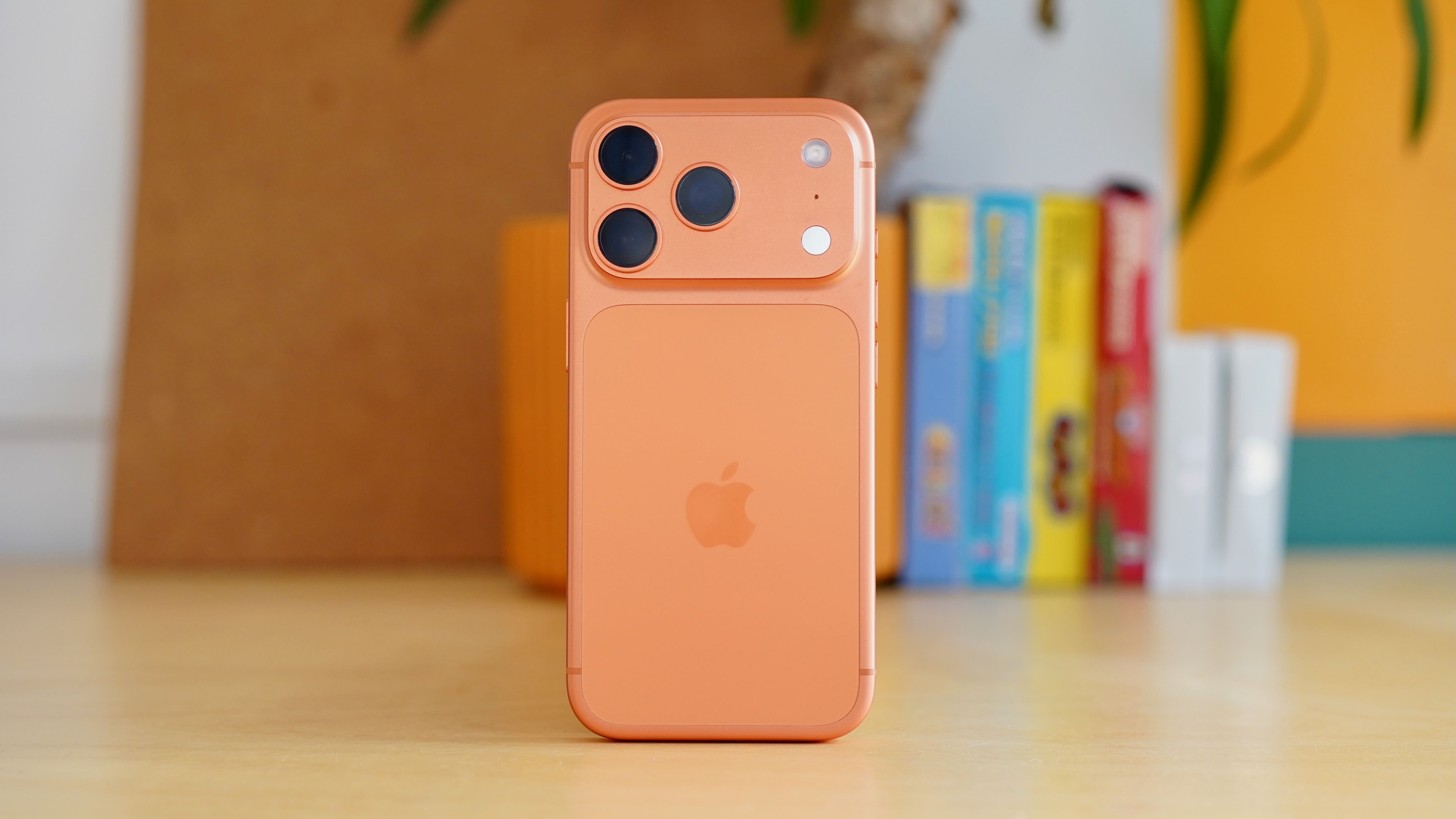

Jon Mundy
The newly-revealed iPhone 17 Pro and iPhone 17 Pro Max handsets have a lot to prove this year. The top-tier premium models in Apple’s annually updated smartphone line-up usually lord it over everything else announced during the company’s September showcase, but things are a bit different this year.
First up, the entry-level iPhone 17 handset has come out swinging with a top-notch new display that puts it on a par with its pricier siblings, and some smart selfie camera features that’ll give it mass-market appeal. Then there’s the all-new iPhone Air, which will make up for what it lacks in the most cutting-edge camera features of the Pro lineup with a design so thin and light it needs to be seen to be believed.
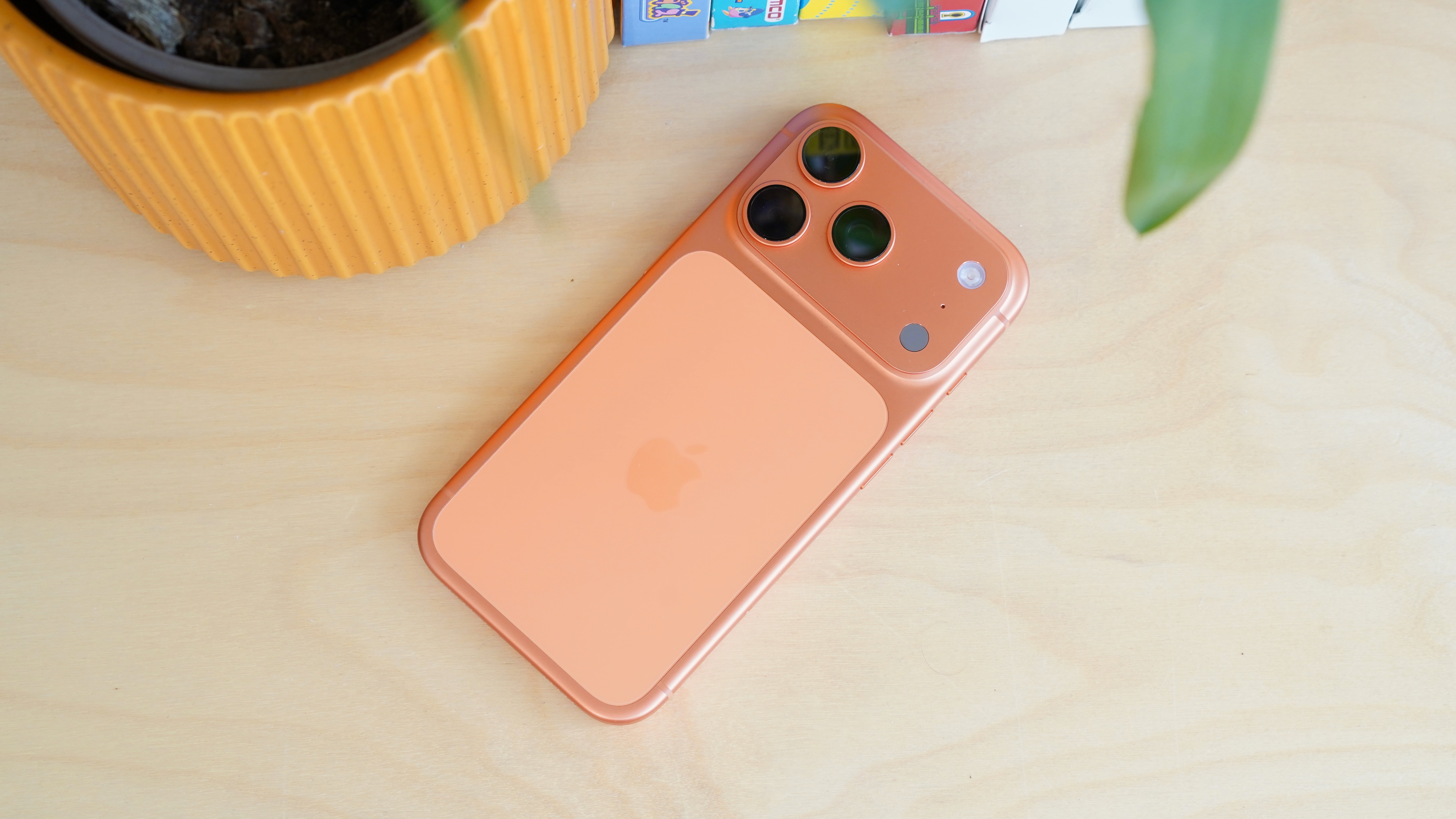
The strength of the range overall means that the iPhone 17 Pro and iPhone 17 Pro Max really have to push that ‘Pro’ part of their names to tempt your wallet open to their pricier demands.
Thankfully, Apple has pulled it off. We’ve gone hands-on with both Pro phones, and have spent the past fortnight with the two models. This is a lustworthy Pro line-up with oodles of power, incredible cameras and slickly redesigned externals that really catch the eye. But you’ll be forgiven for putting a sideways glance in the direction of the Air and entry-level models this year, too.
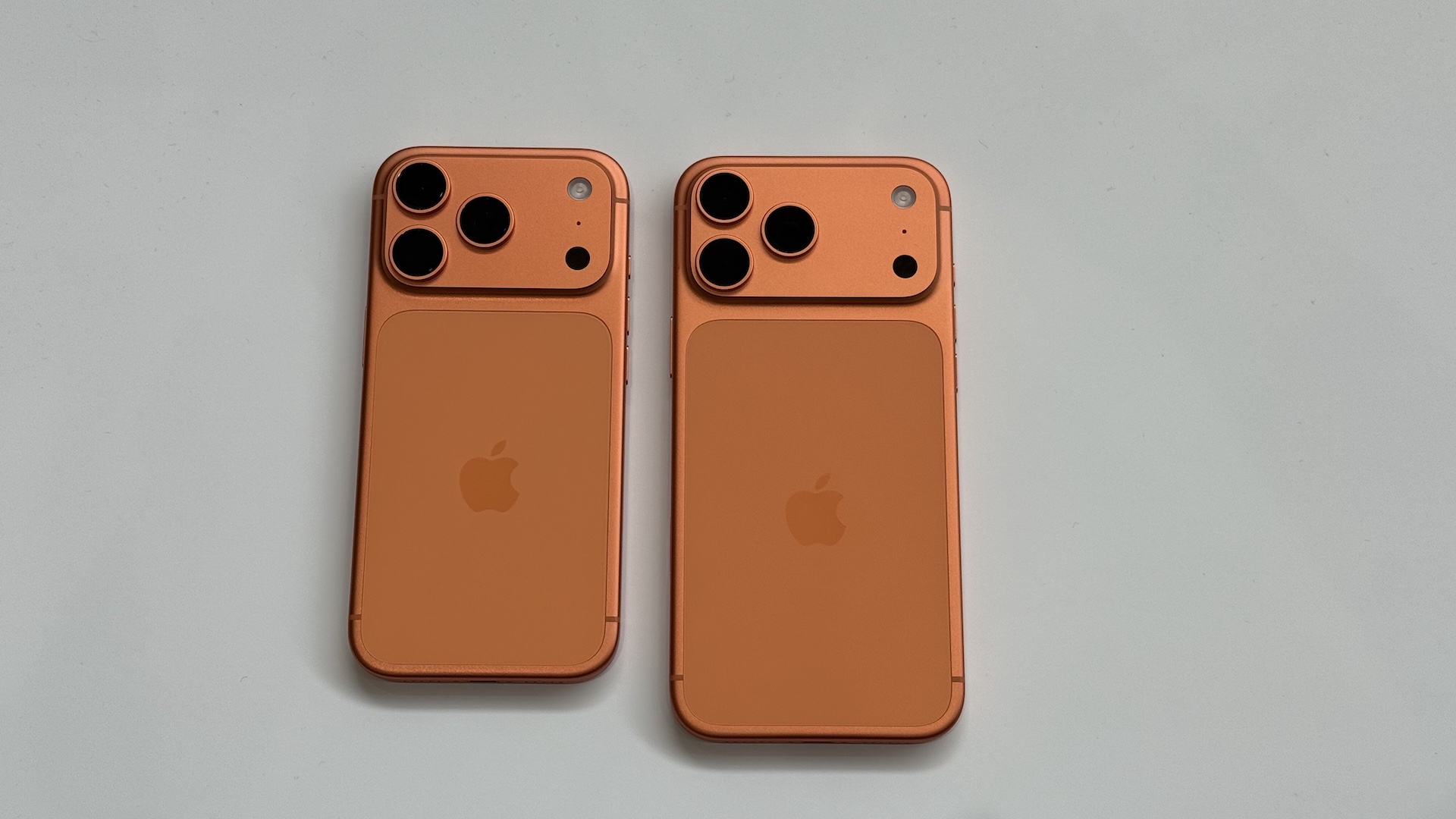
iPhone 17 Pro and 17 Pro Max: In short…
- Unibody Design: Apple has ditched the titanium and formed the Pro’s frame out of a single piece of aluminium
- Pro-Level Performance: A19 Pro chip cooled by a vapour chamber
- Strong battery: Larger battery makes for comfortable all-day stamina
- Apple’s best telephoto camera ever: A new 48MP sensor takes outstanding 4x and 8x zoom shots
- Pricing and availability: The iPhone 17 Pro starts at $1,099 / £1,099, while the iPhone 17 Pro Max starts at $1,199 / £1,199. That’s for the 256GB storage capacity, while Apple also offers pricier 512GB and 1TB models, too. Go for the iPhone 17 Pro Max, and there’s a 2TB model that hits a whopping $1,999 / £1,999 price tag. On general sale now
Design: A unibody build and a ‘plateau’ in your pocket
Apple’s Pro-level iPhones have received a significant upgrade with their new designs — and see the greatest departure from last year’s model when taking a look at the handsets from the rear.
The iPhone 17 Pro and iPhone 17 Pro Max both feature a new, oblong-shaped camera block that goes right across the top of their rear panels, something Apple is calling the “plateau.” It’s a look that may feel familiar to those who’ve looked at Google’s rival Pixel devices, which feature a similarly-raised portion to house cameras on the rear, too.
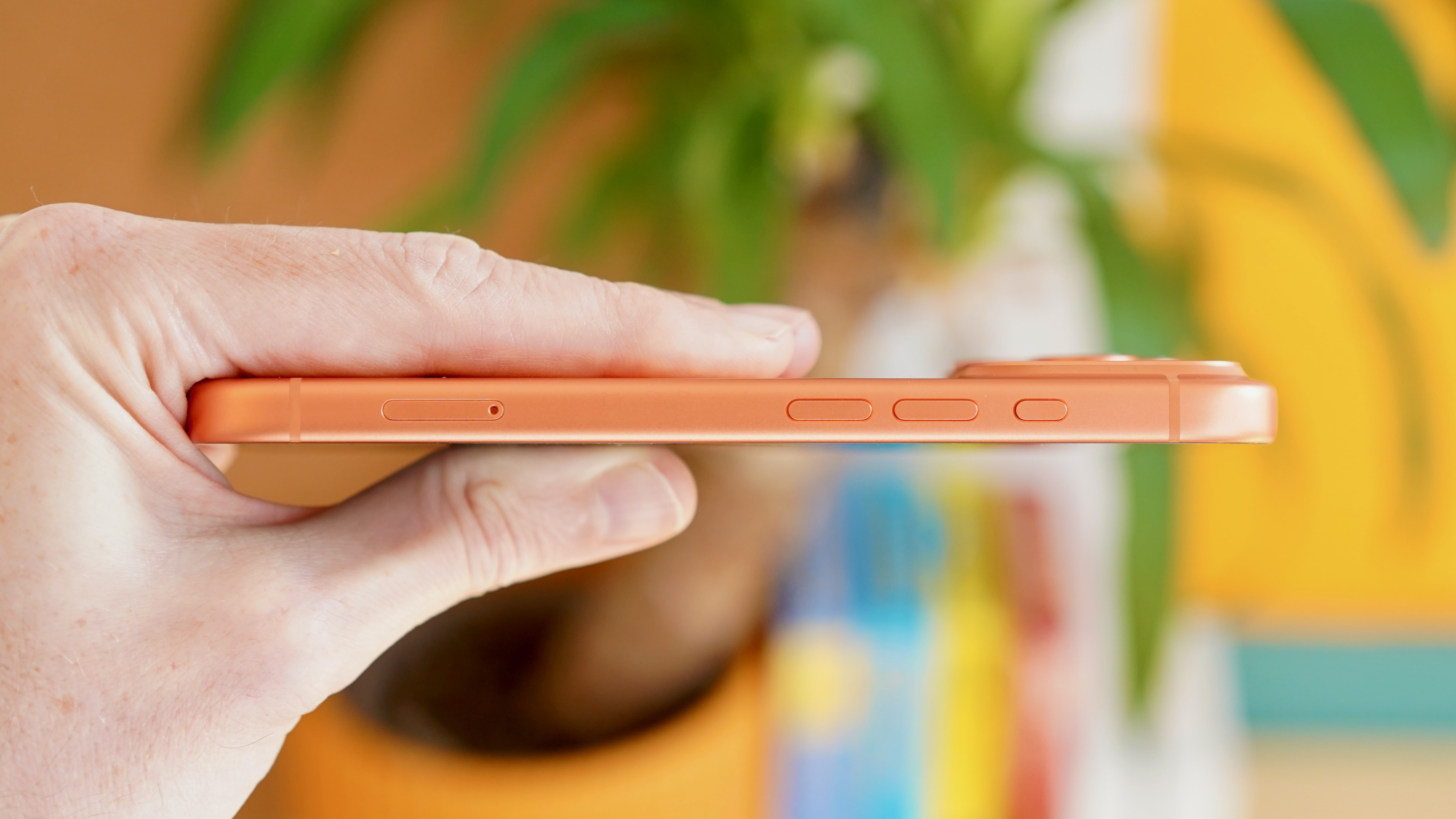
It’s quite different to the square-shaped camera block that usually sits on the back of the Pro iPhones, something that’s been a consistent feature of every Pro-level iPhone since the iPhone 11 Pro. While the three rear cameras themselves maintain their triangular orientation, the new design offers a more spacious layout.
Get exclusive shortlists, celebrity interviews and the best deals on the products you care about, straight to your inbox.
With new, larger sensors and more advanced imaging technology onboard, it makes sense that Apple has put aside a bit more room here to fit it all in. And personally, I’m not against the larger bump on the rear, given it’s now uniformly sized across the back rather than asymmetrically adding some heft to just one side of the handset.
The iPhone 17 Pro and iPhone 17 Pro Max also make use of a brushed aluminium unibody design — a first for the company — stepping back from the titanium frame Apple pushed hard in the iPhone 16 Pro and iPhone 15 Pro. This is a double-edged sword, because while it’s a lighter and more malleable material (enabling that unibody design), it also makes the phone more scratch and ding-prone. All I can say on that front is that I’ve been running it case-free since launch, including on an active (and boozy) trip to Manchester and the Lake District, and haven’t noticed any cosmetic damage whatsoever.
Along with a newly-designed internal vapour chamber, this aluminium unibody also helps to better disperse heat across the device, keeping it from getting too toasty in the hand. Combined, they deliver what Apple considers its best-ever thermal performance in an iPhone. Apple reckons the aluminium in use here offers a 20x thermal performance boost over the titanium used in previous models. I noticed it getting warm when downloading (as well as playing) a particularly meaty game, but never uncomfortably so, and even this was an exception.
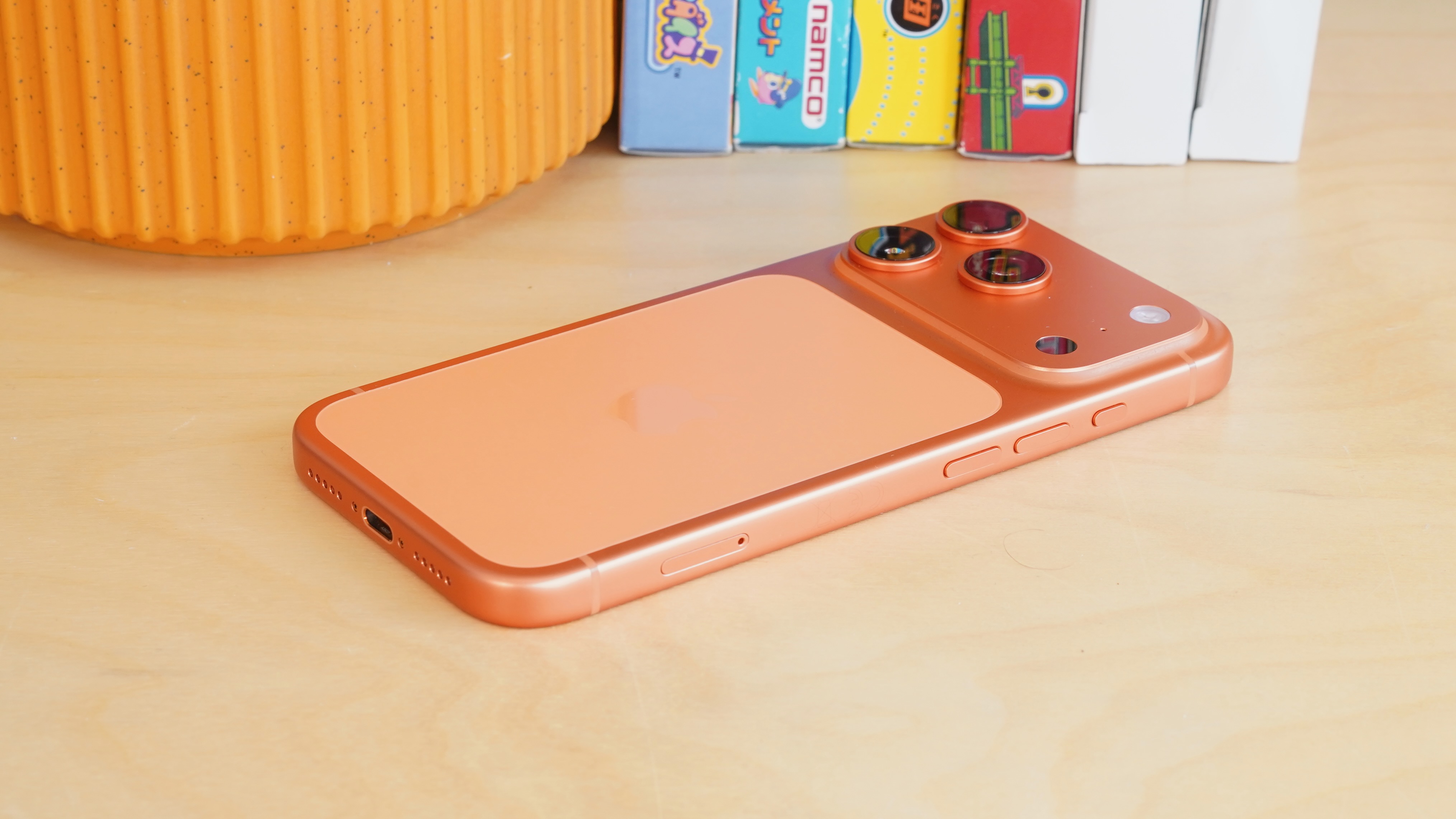
Finishing off the external design is Apple’s new second-generation Ceramic Shield glass. It’s Apple’s durable proprietary composite used to protect the display — and this year it’s present on the front and rear of the iPhone 17 Pro, giving the back panel its two-tone look. It helps make this the most durable Pro-grade device Apple’s ever made, with the Ceramic Shield gen 2 4x better at protecting against cracks, and offering 3x better defence against scratches too, compared to the previous generation.
This is an altogether softer, rounder, more inviting flagship iPhone design than any since the iPhone 11 Pro. Apple has sanded off those sharp corners, while the contrast of the aluminium unibody frame and the glass rear panel makes it as interesting to look at as it is comfortable to handle, if a little slippery. The Cosmic Orange shade, meanwhile, sees Apple finally recognising that pros can have fun too. There are Silver and Deep Blue options for those who want something a little more reserved or traditional.
Those screens remain essentially the same as on previous Pro models, with a 120Hz ProMotion refresh rate and coming in at 6.3 and 6.9-inch sizes, depending on whether you go for the Pro or Pro Max size options. They’re still lovely to look at and manipulate, outputting vibrant yet accurate colours and deep blacks, and with a pleasingly tactile level of responsiveness, aided by Apple’s peerless haptic feedback.
This time around these screens can also get 50% brighter, with a peak output of 3,000 nits in sunny outdoors scenarios. Even on an unusually cloudless late-summer week in the North West of England, I never once struggled for visibility.
Cameras: Zooming to the front of the pack
Here’s where the iPhone 17 Pro and iPhone 17 Pro Max start pulling away not only from their iPhone 17 and iPhone Air stablemates, but the Android competition, too. The camera tech squeezed into that plateau is, frankly, a bit mad.
Both the iPhone 17 and iPhone 17 Pro Max feature a 48MP ‘Fusion’ telephoto camera with a 4x optical zoom and a crazy 8x ‘optical-quality’ zoom. That’s a significant jump over 3x and 5x optical zooms found in the iPhone 15 Pro and iPhone 16 Pro generations, respectively, and sees Apple going toe-to-toe with the 50MP / 5x optical zoom of the rival Samsung Galaxy S25 Ultra.
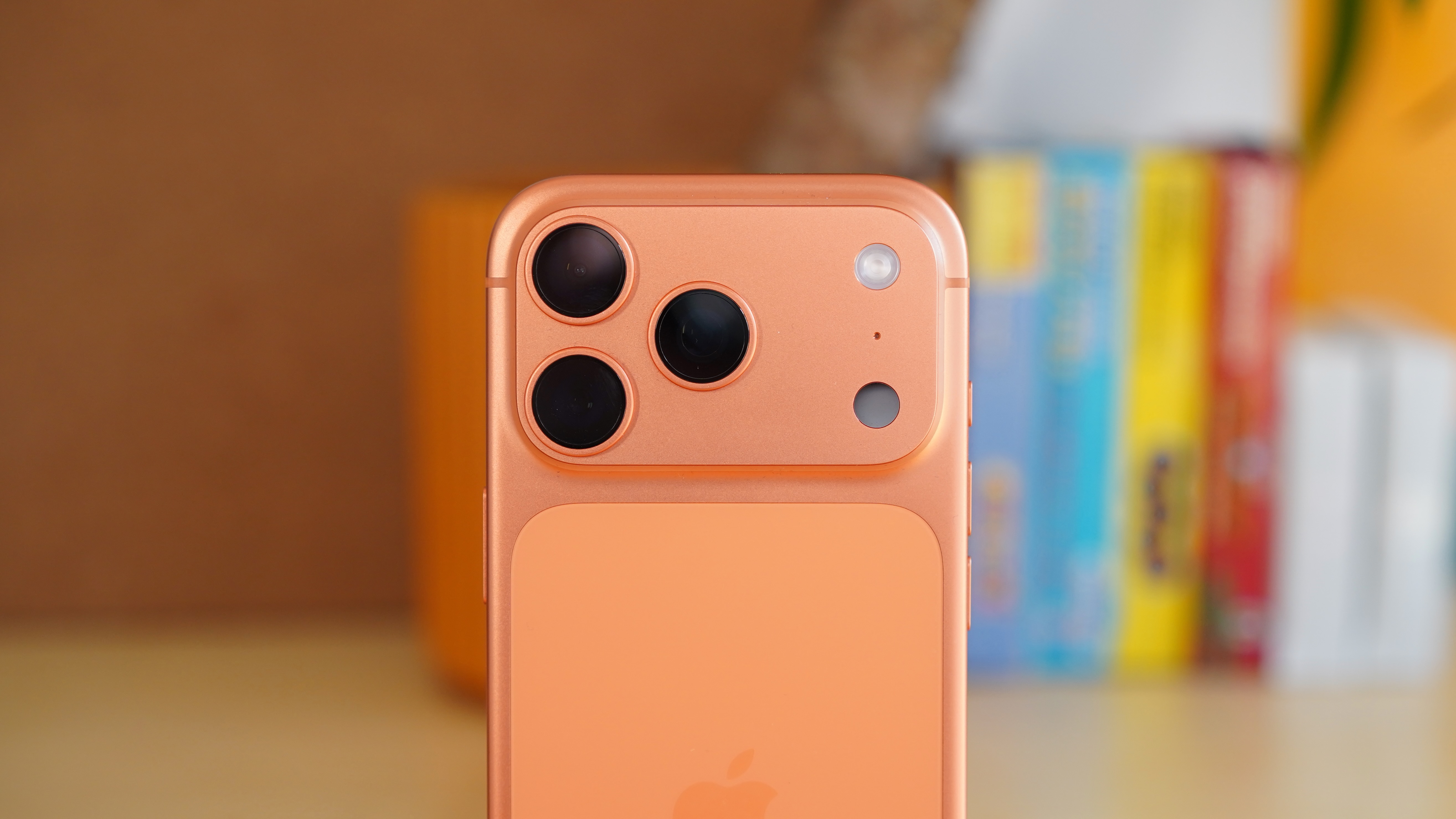
Apple’s use of language (optical-quality) sounds tricksy, but the results speak for themselves. There might be cropping and image processing involved with those 8x shots (Apple’s Photonic Engine comes into play), but the images are still packed full of detail. With a 56% larger main sensor, the iPhone 16 Pro can zoom to 4x at 100mm and 8x at 200mm, letting the iPhone blow up a scene eight times its original size. Digital zoom now goes to a wild 40x, too. Combined, the Fusion lens options are “equivalent to eight pro lenses in your pocket”, says Apple. I don’t quite buy that claim – the zoom falls apart beyond 8x, for one thing – but it does take compelling shots at the five immediately available focal lengths, including a solid 48MP ultra-wide.
I do wish Apple wouldn’t default to the ultra-wide for close-ups, though. It’s not a particularly large sensor, which can make for some murky food shots when snapping in low-lit restaurants.
That telephoto camera arguably isn’t even the most impressive camera here. Flip the camera around, and the selfie option gets a boost too. Jumping from 12MP to 18MP, the front-facing camera is now called the ‘Center Stage’ camera, and has some AI-enabled tricks of its own. Making use of a square sensor, it can now intelligently judge a scene to see what your intention is — whether that’s to take a glamorous solo shot, or squeeze in a bundle of mates — and use the ultra-wide lens on offer to smartly crop in a portrait or extend to a landscape shot to keep all your pals in focus. I really appreciated the ability to manually switch the orientation without requiring me to physically rotate the phone 90 degrees, too.
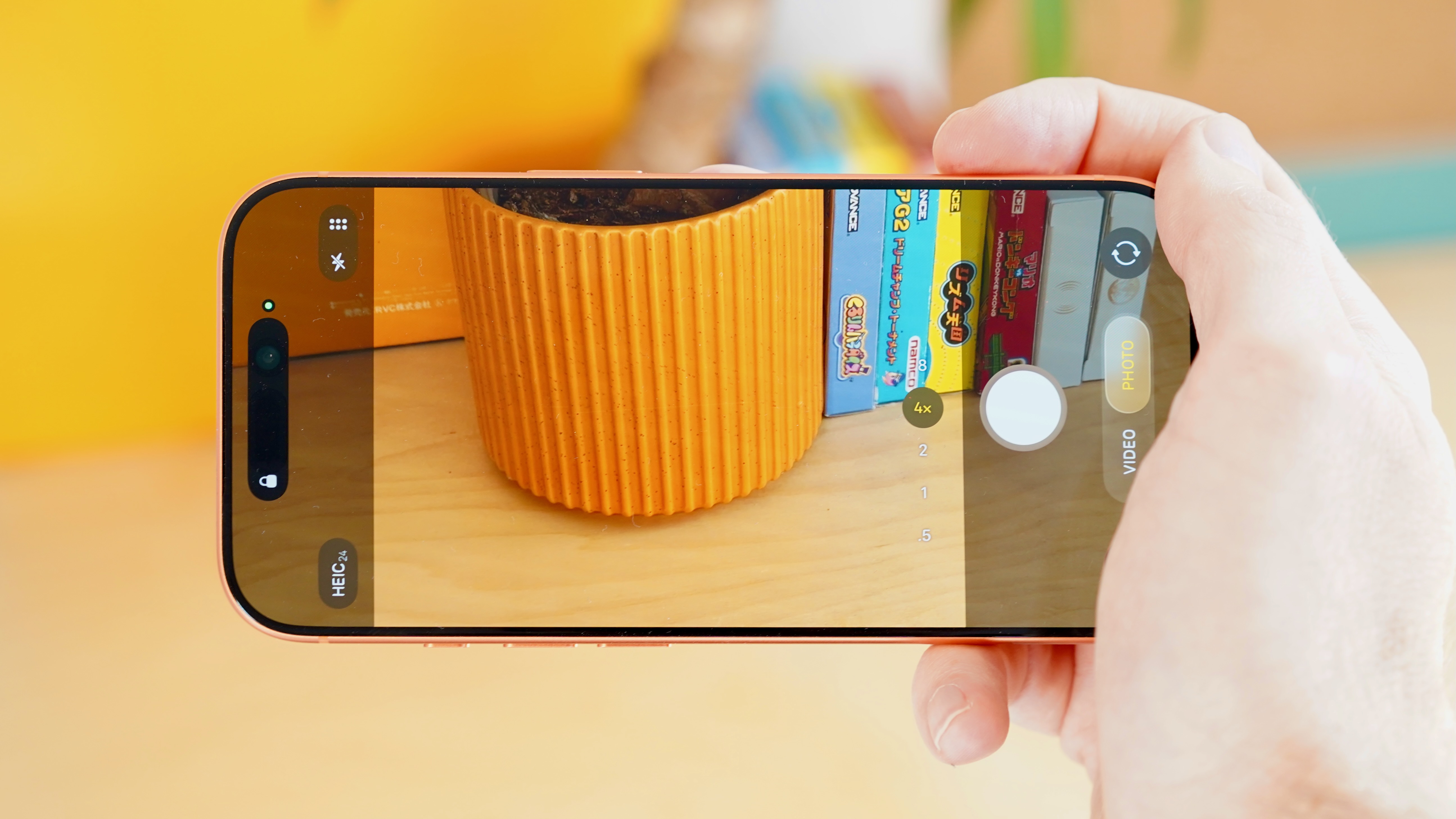
Selfie image quality is a real highlight here, offering sharp subject detail and rich colours. I shot several selfies side by side with the Google Pixel 10 Pro, which packs an awesome 42MP selfie camera, but I think the iPhone 17 Pro’s might just top it.
You can also use the rear and front-facing cameras together in a new ‘Dual Capture’ mode that captures from both lenses at once. You’ll be able to record both what you’re looking at, and your own reaction to events at the same time, automatically edited into a single video clip. I didn’t find a use for this in my own daily life, but it’ll doubtless be great for those key life moments, and for quick on-the-go reaction videos for content creators.
The most demanding of filmmakers also get access to ProRes RAW Capture and Genlock, which makes accurate and professional-looking transitions without needing painstaking frame alignment, via a BlackMagic accessory. The iPhone range has long been the best for video capture by some margin, and the iPhone 17 Pro continues the tradition.
Internal specs: A19 Pro efficiency
Top-tier iPhones always get Apple’s flashiest chipset, and this year’s is no exception. The iPhone 17 Pro and iPhone 17 Pro Max both get the all-new A19 Pro chipset, Apple’s most capable mobile processing unit ever. This year, however, the handsets have to share that distinction with the iPhone Air, which also gets the A19 Pro, making the choice between the different tiers of iPhone a bit of a closer race than in recent generations.
So what’s the A19 Pro offering? Apple’s homegrown silicon packs in a 6-core CPU and 6-core GPU, which is faster and more efficient than the A18 Pro found in last year’s flagships. That’s also one extra GPU core over the iPhone Air, making this the fastest iPhone of the lot.
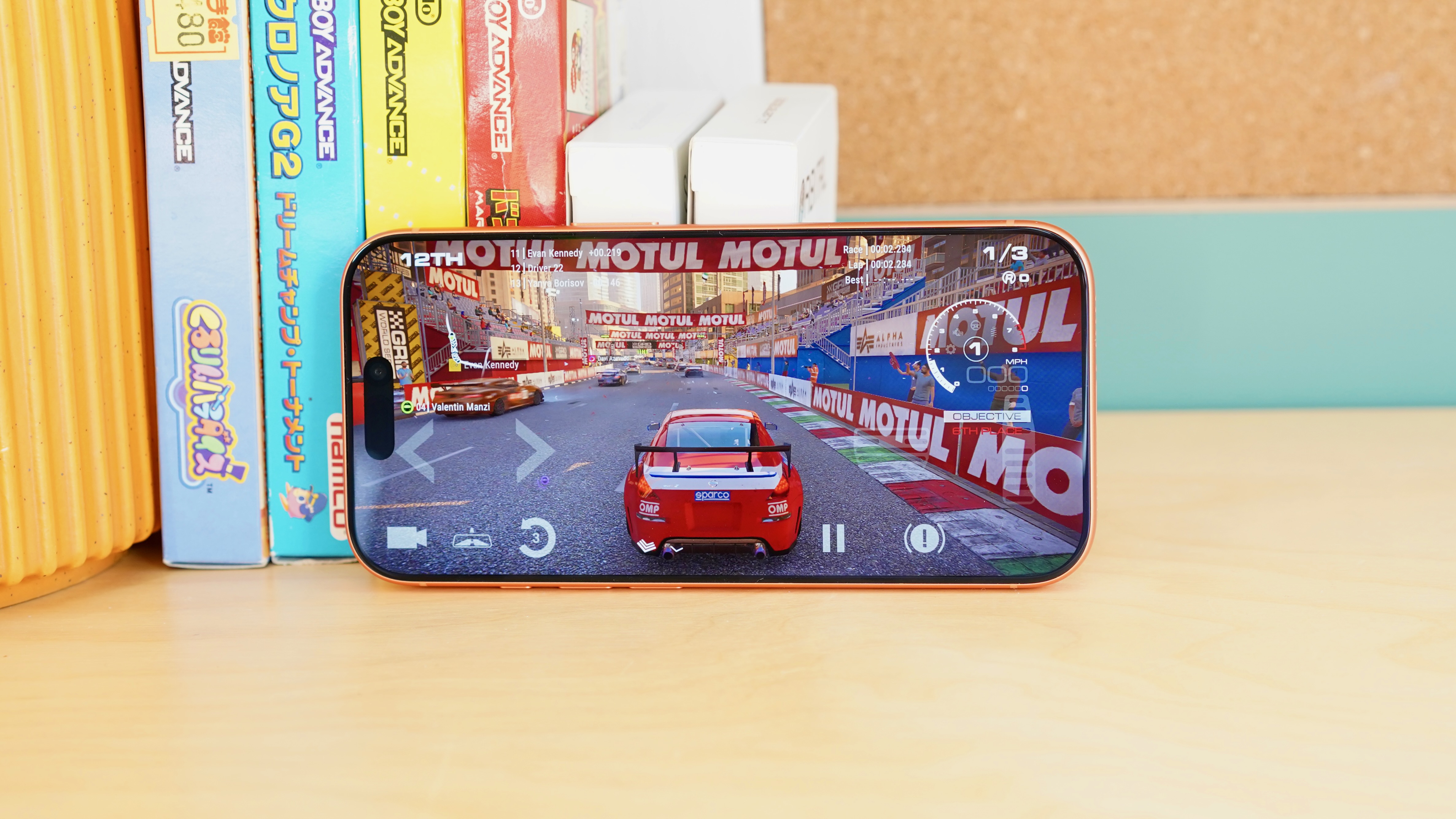
The keyword there might be ‘efficiency’ — though there are gains to 3D performance and on-device AI compute speeds, the thermal design here means the A19 Pro can sustain that high performance for 40% longer than previous generations, which would need to throttle sooner to keep them from overheating. The A19 can be pushed harder for longer, making it more capable for high-end processes like graphically-intensive games or video editing applications.
It’s hard to put the iPhone 17 Pro’s performance to the test, given that no 3D game or advanced app could really make its predecessor sweat. As already noted, though, the telling point is that it ran high-end games like GRID Legends extremely fluidly without heating up to a problematic degree. It also benchmarks as well as any Android phone on average, with particularly strong single-core CPU results.
Also introduced across the iPhone 17 line-up is the new N1 connectivity chip, which packs in Wi-Fi 7, Bluetooth 6 and Thread connections. It’s again faster and more efficient than what was seen in previous handsets, meaning features like AirDrop and Personal Hotspot are more performant and reliable. Anecdotally, I noticed iPhones appearing quickly and consistently when I went to share a local file with AirDrop, which hasn’t always been the case in my experience.
Battery life: Apple’s best ever phone battery
While Apple didn’t share specifics when it came to battery capacity in the iPhone 17 and iPhone 17 Pro Max, it did claim that the iPhone 17 Pro Max will offer “the longest battery life of any iPhone model ever”. With internal changes freeing up space for a larger battery, it’s now quoting 39 hours of video playback per charge.
If you opt for an eSIM-only version of the iPhone 17 Pro and iPhone 17 Pro Max, that battery life quote jumps a touch higher, too. By exactly how much is unclear, but the space freed up by a lack of a physical SIM card affords Apple the opportunity to squeeze in a larger battery in those models.
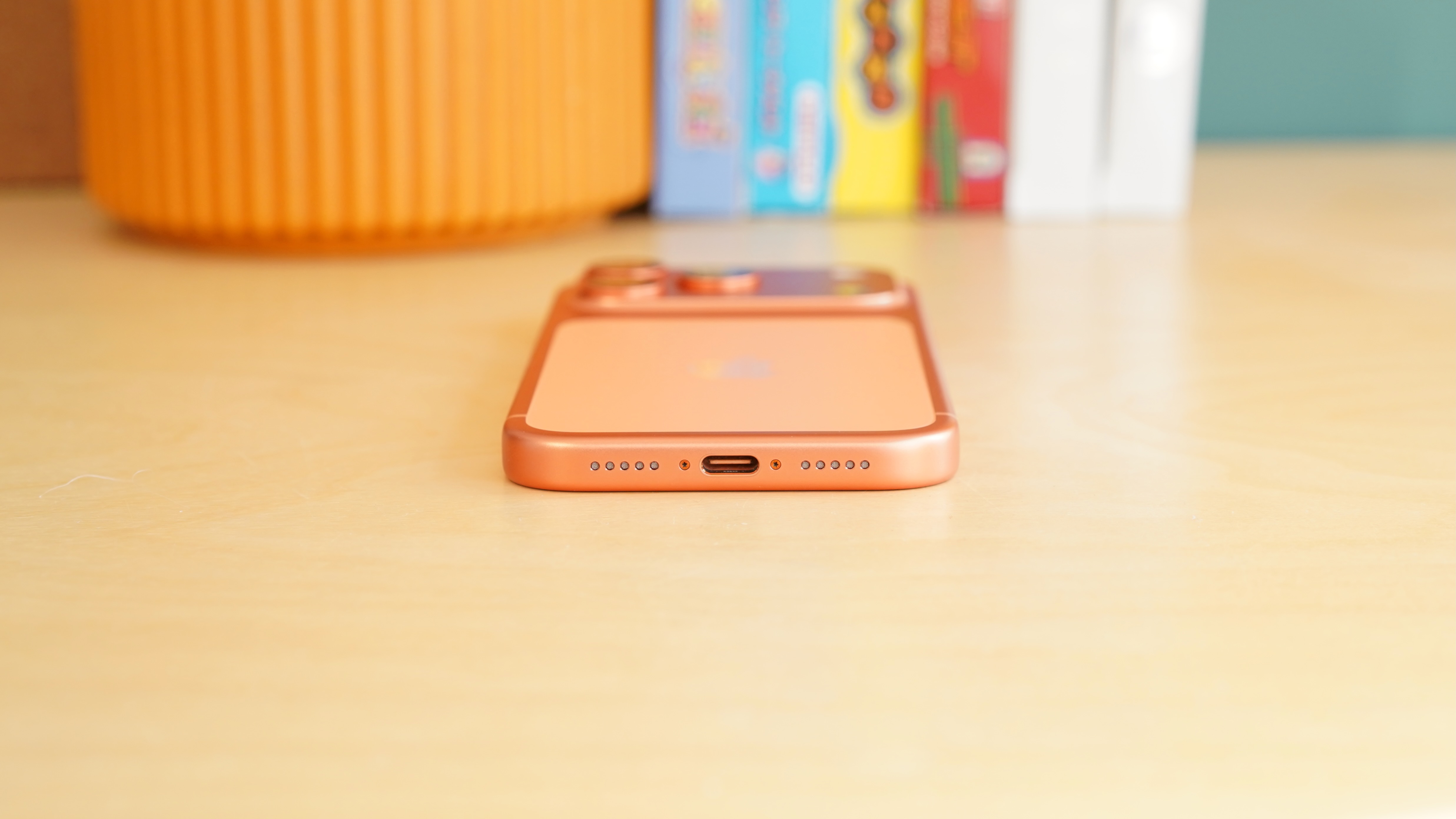
Even my non-eSIM iPhone 17 Pro model – which most people will be getting – packs a 3,998mAh battery, which is almost 12% larger than that of the iPhone 16 Pro. Combined with that more efficient A19 Pro chip, I didn’t experience a single day where the phone ran out of power before bed time, even during a trip to the Lake District in which the phone was constantly hunting for a mobile signal while the camera was in constant use.
On lighter days spent on a stable Wi-Fi connection, I was able to sail right through to dinner time on the second day before the telltale red low-battery symbol appeared.
This is still a phone that you’ll want to charge every night, then, but unlike the iPhone Air you should feel confident in pushing your luck.
iOS 26: Not-so-clear improvements
It isn’t specifically related to the iPhone 17 Pro, given that it’s available to all iPhones, but iOS 26 comes with the phone right out of the box.
This has been a somewhat divisive update from Apple, and it’s not hard to see why. I’m not a huge fan of the new Liquid Glass design language that pervades Apple’s current software. It brings to mind some of the dated ‘skuomorphic’ flourishes of the early days of iOS, particularly with the semi-transparent and shadowing effects seen in the notification pane and app icons.
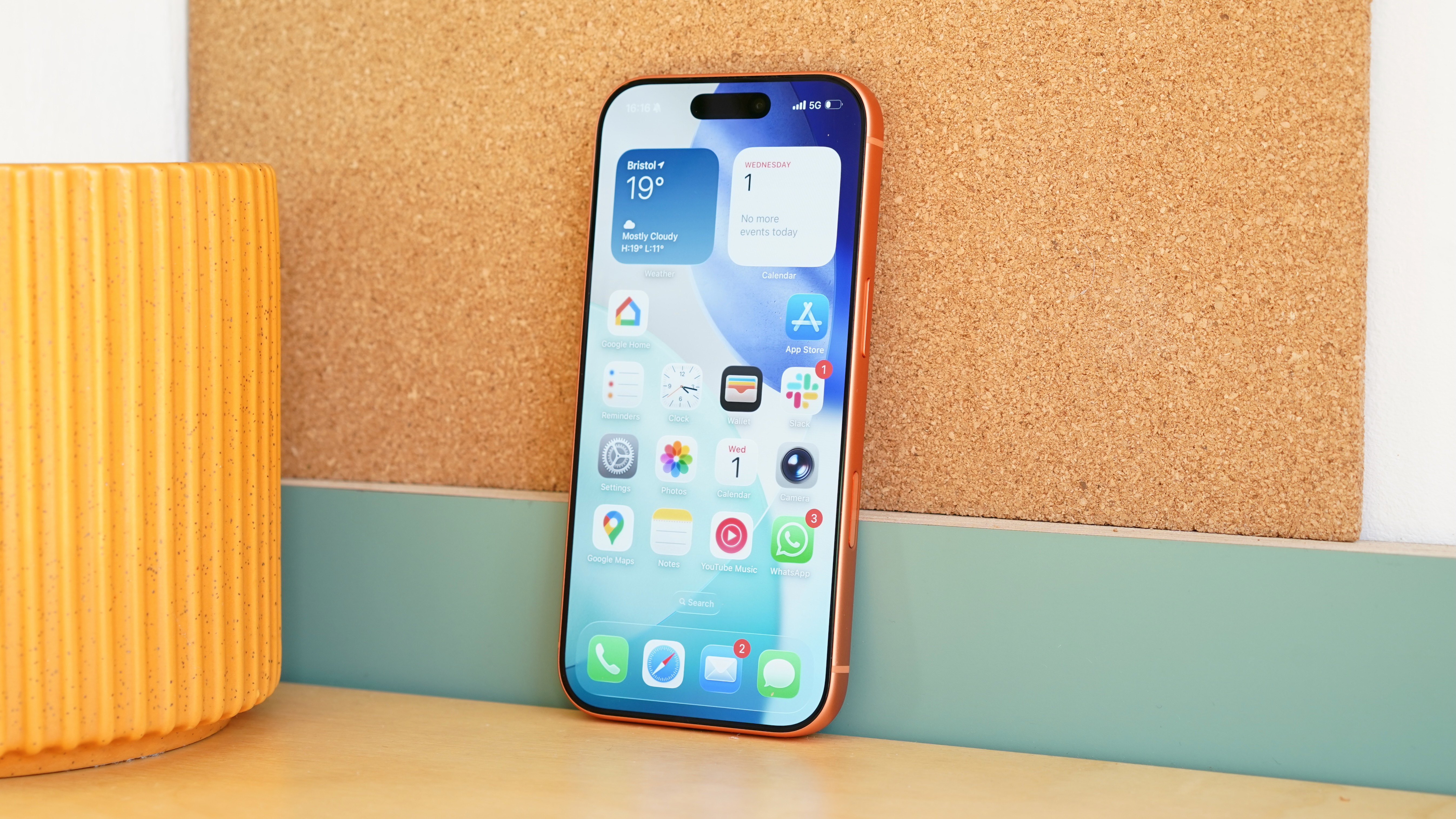
As we noted in our iPhone Air review, the effect of those various transparent layers moving over one another can be distracting.
Elsewhere, though, the enhancements are mainly thoughtful. Some of the potentially irksome changes Apple has made to its various apps simply require some readjustment. The fact that you now have to press two buttons to bring up the tab view in Safari is annoying, right up until you realise you can swipe up from the URL bar or pinch the screen to obtain the same result.
Indeed, iOS 26 is full of little intuitive enhancements that I suspect will make life easier for most people. Things such as the way screen elements shrink or even disappear until you need them, or system-wide visual intelligence access.
This is a more customisable OS than before, too. Don’t like those see-through app icons? Change them to a different tint, Android-style.
Final verdict: Apple’s most compelling premium phone in years
The iPhone 17 Pro models are offering up crazy specs at a premium price, and will be coveted particularly by demanding photographers and videographers. It’ll be interesting, though, to see whether it’s these models or the iPhone Air which captures the imagination of the masses.
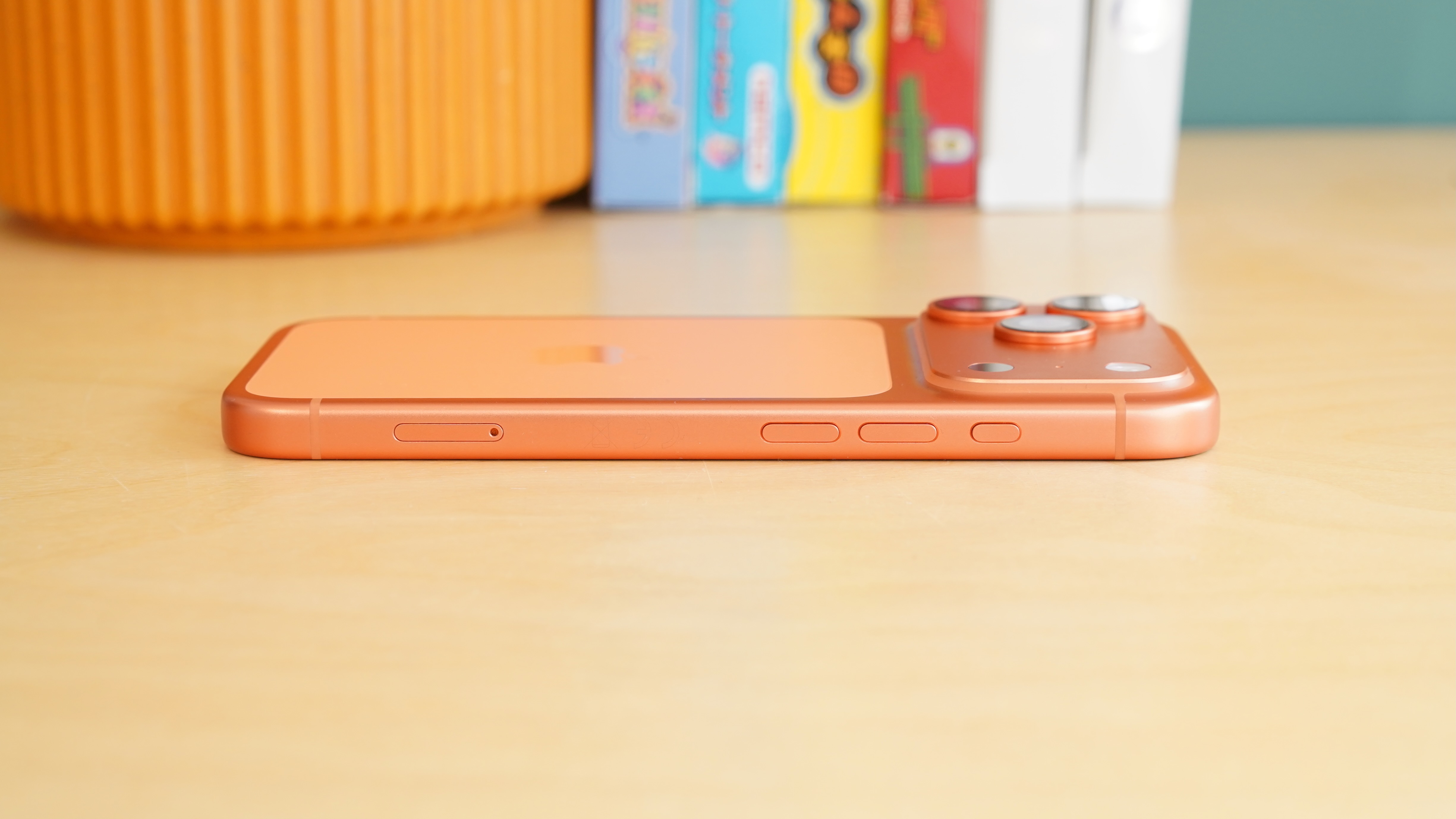
For my money, the iPhone 17 Pro is the better phone. At a mere 10% premium you’re getting superior sustained performance, dependable battery life, and a significantly more powerful and flexible camera system.
The latter incorporates the best zoom camera Apple has ever made, as well as a boldly innovative selfie camera that could well be the best example that any phone maker has made (though the latter isn’t exclusive to the Pro). Both are powerful, flexible, and take fabulous shots.
£1,099 remains a lot to pay for a smartphone, and the vast improvements made to the iPhone 17 this year make it the better buy for most people. But if you’re an avid user who wants the best photographic experience and raw performance that Apple can provide, all wrapped up in its boldest design work for years (especially in that striking Cosmic Orange), there’s only one choice.

Gerald Lynch is the Editor-in-Chief of Shortlist, keeping careful watch over the site's editorial output and social channels. He's happiest in the front row of a gig for a band you've never heard of, watching 35mm cinema re-runs of classic sci-fi flicks, or propping up a bar with an old fashioned in one hand and a Game Boy in the other.
You must confirm your public display name before commenting
Please logout and then login again, you will then be prompted to enter your display name.